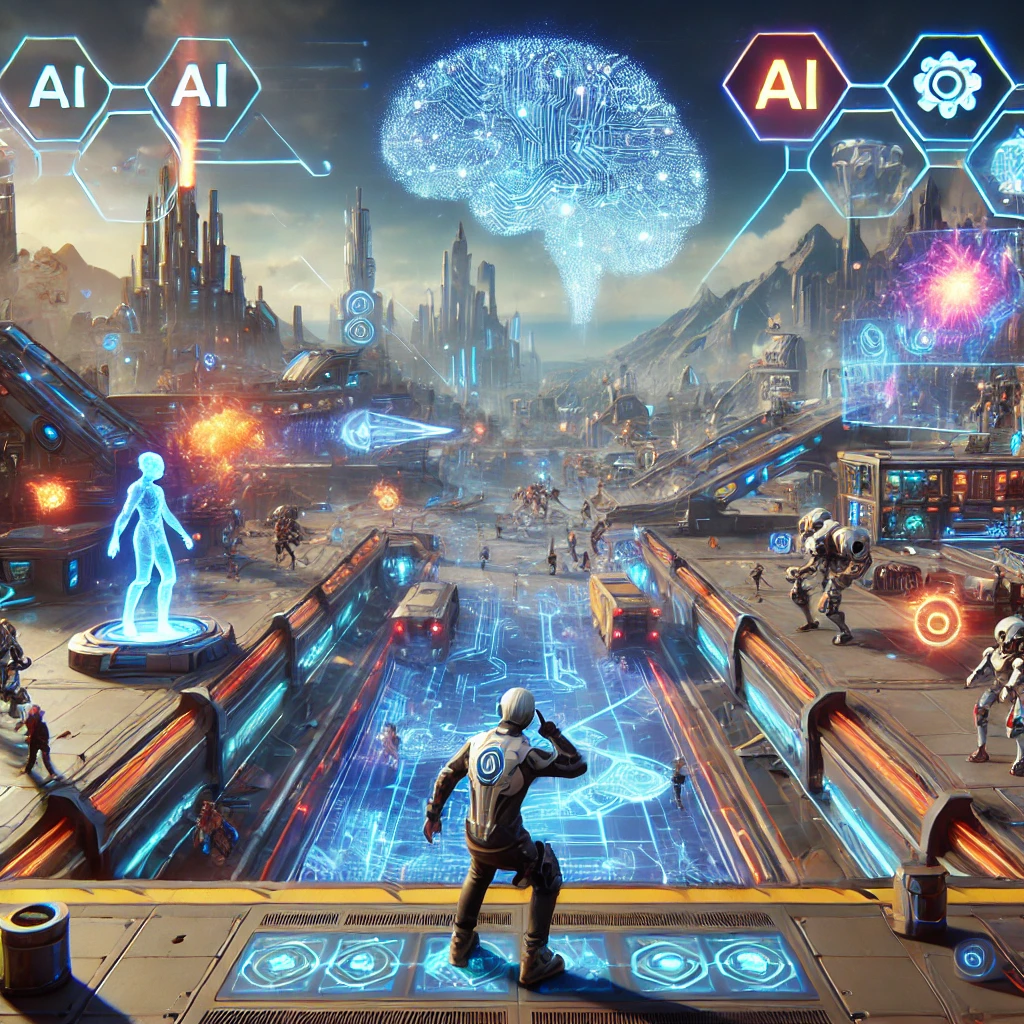In recent years, artificial intelligence (AI) has revolutionized the gaming industry, enabling developers to create increasingly complex, dynamic, and engaging experiences. From NPCs (non-playable characters) with advanced behaviors to procedural world generation, AI is shaping the future of video games. In this article, we will explore the evolution of AI in gaming, its current applications, and the potential it holds for the future.

The Early Days of AI in Games
The use of AI in video games can be traced back to the early days of gaming when developers sought to create basic enemy behaviors and interactions. In classic arcade games like Space Invaders (1978) and Pac-Man (1980), AI was limited to simple algorithms that controlled enemy movement patterns. These early implementations were rudimentary, yet they laid the foundation for more complex AI systems to come.
Advancements in AI: From Static to Dynamic Behaviors
As technology improved, AI began to evolve in video games. One significant advancement was the introduction of more sophisticated enemy behaviors, allowing NPCs to adapt to the player’s actions. In games like GoldenEye 007 (1997), enemies started to react to the player’s presence, seek cover, and communicate with other NPCs. This shift from static to dynamic AI significantly enhanced the gameplay experience, making interactions feel more immersive and challenging.
Procedural Generation and AI-Driven Worlds
One of the most exciting developments in AI-driven gaming is procedural world generation. Games like Minecraft (2011) and No Man’s Sky (2016) use AI algorithms to create vast, procedurally generated worlds that are unique to each player. By leveraging AI, these games offer near-infinite possibilities, ensuring that every playthrough is different from the last. This approach to world-building is transforming how players explore and interact with virtual environments.
AI in NPCs: The Rise of Intelligent Characters
AI has also made NPCs smarter and more lifelike. In modern role-playing games (RPGs) like The Elder Scrolls V: Skyrim (2011) and The Last of Us (2013), NPCs now exhibit complex behaviors, emotions, and decision-making processes. AI-powered characters can engage in deep conversations, form relationships with players, and react to the player’s choices in meaningful ways. This level of complexity not only improves immersion but also creates more meaningful player experiences.
AI in Game Design and Player Personalization
AI is also being used in game design to personalize the player’s experience. Games like Left 4 Dead (2008) and The Division 2 (2019) employ AI to dynamically adjust the difficulty level based on a player’s skill and performance. By analyzing player behavior, these games can create challenges that feel balanced and engaging, preventing frustration or boredom.
Additionally, AI-driven analytics can track players’ preferences and adapt gameplay mechanics, missions, and narratives to suit individual tastes, making every gaming session feel unique.
The Future of AI in Gaming
The potential of AI in gaming is virtually limitless. In the coming years, we can expect to see even more advanced implementations of AI, from more intelligent NPCs to procedurally generated narratives that evolve based on player decisions. Virtual reality (VR) and augmented reality (AR) are likely to integrate AI even further, offering fully immersive environments where AI plays a pivotal role in shaping the story, gameplay, and interactions.
Furthermore, AI will continue to improve the development process itself. By using machine learning and neural networks, developers can automate testing, debug code more efficiently, and create game worlds that feel more authentic and alive.
Conclusion
The evolution of AI in video games has already led to significant advancements in gameplay, narrative, and player engagement. As AI continues to progress, we can expect even more exciting innovations that will transform how we play and experience games. The future of AI in gaming holds immense potential, and we’re only scratching the surface of what’s possible.